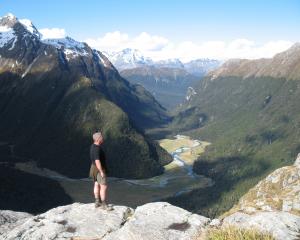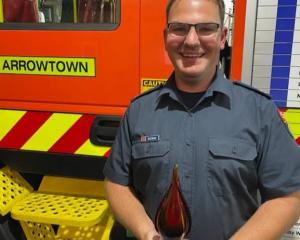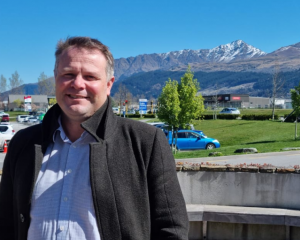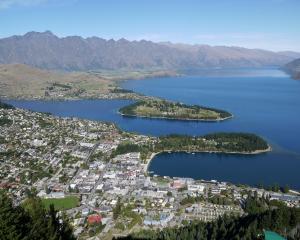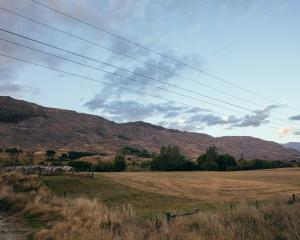The Queenstown Lakes District Council is not setting out to ‘‘prop up'' the district's farmers through its proposed district plan.
Council lawyer James Winchester made that point at the opening of a week-long review of sections of the council's district plan, including the rural zone, being held at Lake Hawea.
Mr Winchester took issue with the written evidence of economics spokesmen Michael Copeland and Prof Tim Hazledine in support of various submitters, saying their evidence was ‘‘undermined'' by being based on an ‘‘incorrect factual premise''.
‘‘Both statements incorrectly suggest that the council is, through its rural provisions, seeking to prop up an ailing primary production/farming sector and protect its viability, to the detriment of other stronger economic contributors to the local economy,'' Mr Winchester said.
‘‘That is quite incorrect.
‘‘The correct position is that the council is consciously seeking to recognise and provide for farming activity and rural land management practices within rural areas, given the substantial influence that it has on character and in shaping the very natural resources upon which the bulk of the district's economy relies.''
Mr Winchester said it was wrong to suggest the council was discouraging tourism activity or other non-farming uses of rural land.
‘‘This is evidenced by the council's clear recognition that non-farming uses are likely to seek to locate in the rural zones, but that their actual and potential effects will need to be managed.''
The hearing is before commissioners Denis Nugent (chairman), Mark St Clair and Brad Coombs.
Evidence from the council's Auckland consultant Phil Osborne, to be presented tomorrow, deals with the potential risk to the rural landscape from ‘‘inappropriate tourism activities''.
Mr Osborne says in his written evidence the natural environment is considered by the district's residents to be the area's ‘‘single biggest asset''.
While acknowledging the value of the tourist industry and its expected growth, Mr Osborne said it was important the council recognise the ‘‘vulnerability of the natural environment'' the industry relied on.
Mr Osborne said the decisions of individuals ‘‘potentially impact the wider economy'' and therefore the council needed to manage the resource effectively.
He noted agriculture in the district ‘‘continues to struggle'', generating $50 million in gross domestic product last year against tourism that contributed over $650 million.
He considered the position of the council was ‘‘not to protect the viability of agriculture in itself but to manage the natural environment from activities which might be potentially detrimental to it''.
‘‘This in turn safeguards the economic value attributable to the tourist activities that rely on the natural environment to remain competitive.''




